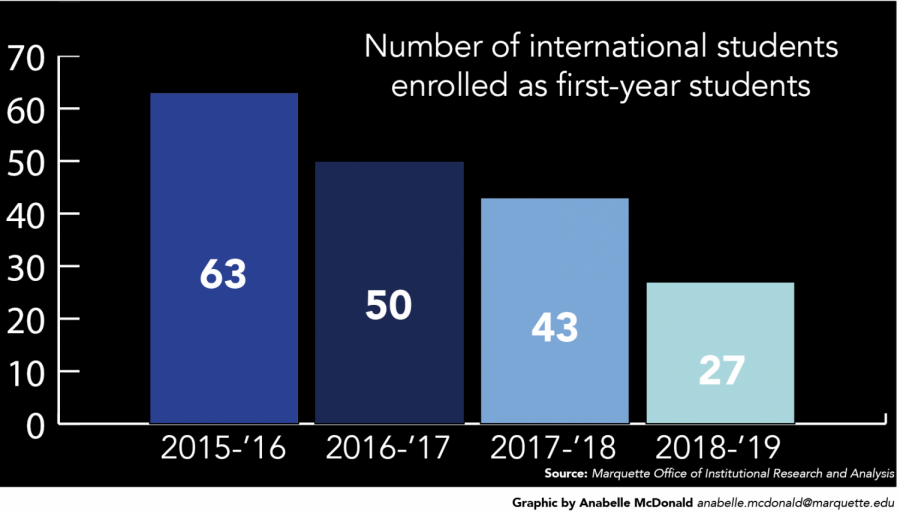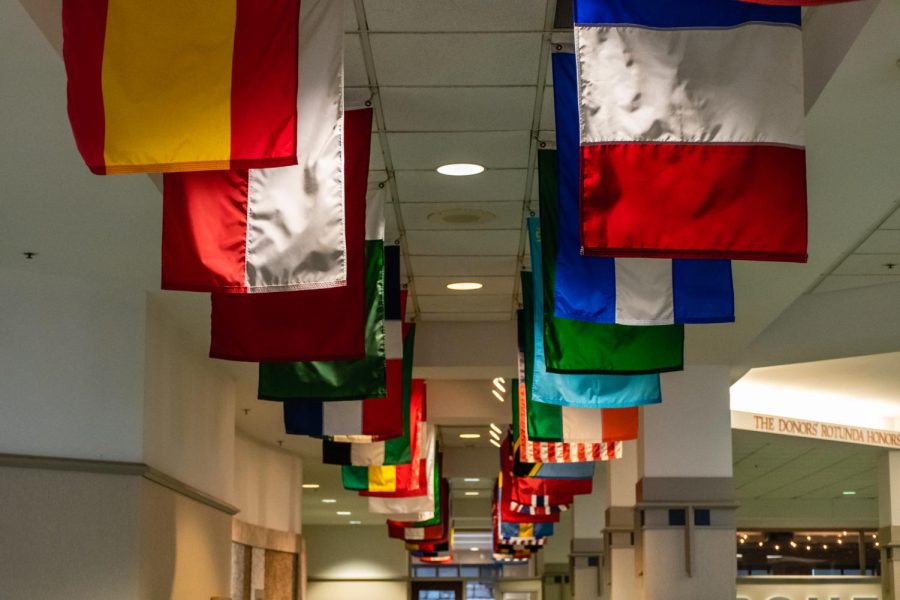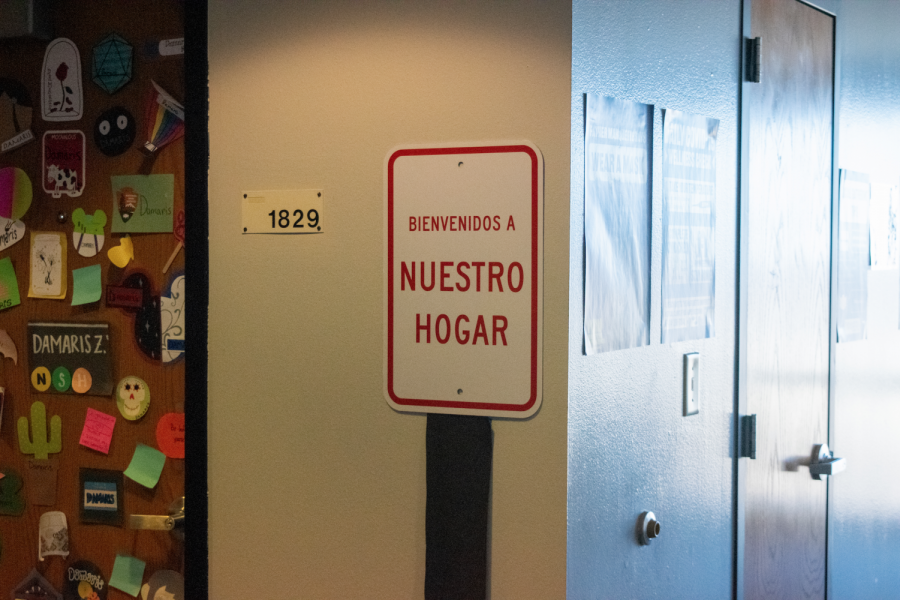The Trump administration has instituted or proposed several policies to discourage international students from attending colleges in the U.S. These policies have likely contributed to the decline in enrollment from international learners at Marquette and schools around the nation. The administration must change course to protect international students’ educational opportunities, as well as the cultural and economic benefits these students can provide.
Research from the Institute for International Education shows that new international undergraduate student enrollments in the U.S. declined 6.3 percent from the 2016-’17 to the 2017-’18 academic year. Additionally, international graduate student enrollment decreased 5.5 percent in the same period. This represents the second consecutive year of downturn in both categories, neither of which had experienced an enrollments decline in the six preceding years.
The plunge in enrollments is also reflected at Marquette. Only 27 members of Marquette’s current full-time first-year undergraduate class are international students, according to the Office of Institutional Research and Analysis. This constitutes a 37 percent decrease from the number of international students in the 2017-’18 first-year class, and a 46 percent decline from the 2016-’17 first-year class.
The nationwide enrollment downturn is likely tied to anti-immigrant rhetoric that President Donald Trump expressed on the campaign trail, which has extended to harmful policies for international students throughout his presidency. In August, U.S. Citizenship and Immigration Services changed its “unlawful presence” policy, which increased the likelihood that international students can be deported or banned from re-entering the country for seemingly minor infractions. These include working at an on-campus job for more hours than allowed, working at an off-campus job without government permission or missing too many classes.
Additionally, in October, U.S. Immigration and Customs Enforcement announced that it intends to establish a maximum period of authorized stay for international students by fall 2019. Currently, international students can stay in the country as long as they remain students, a period known as “duration of status.” The proposed rule has caused concerns for international students who may want to spend more time to obtain their degrees or pursue further education, according to the Columbia Spectator.
These factors have likely made American universities less attractive for international learners, especially when other countries offer similar high quality educational opportunities. Almost 75 percent of college admissions directors agree that the policies and rhetoric of the Trump administration have made it more difficult to recruit international students, according to a 2018 survey by Inside Higher Ed and Gallup. Canada seems to have already capitalized on these recruitment difficulties, as the Canadian Bureau for International Education found that the number of international postsecondary students in the country increased 16 percent from December 2017-’18.
The decline in international learners at U.S. schools should also be troubling for native-born students. Research from Duke University found that American students who interact with international students not only increase their knowledge of foreign cultures, but also their self-confidence and leadership skills. These attributes will be especially helpful when navigating diverse workplaces after college. Additionally, international students often pay high net tuition payments, which helps subsidize the cost of enrolling additional domestic students, according to research from the Rensselaer Polytechnic Institute.
The decline also undermines the economic benefits international students provide. During the 2017-’18 academic year, international students contributed $39 billion to the U.S. economy while also supporting more than 455,000 American jobs, according to the National Association of Foreign Student Advisers. International learners provided $406.7 million to Wisconsin’s economy alone during this time period.
To protect the benefits that international students provide for American universities and the greater economy, the Trump administration should rescind the regulations and proposals that have alienated this group. The administration should also demonstrate a commitment to providing a welcoming and flexible educational experience for these students.





